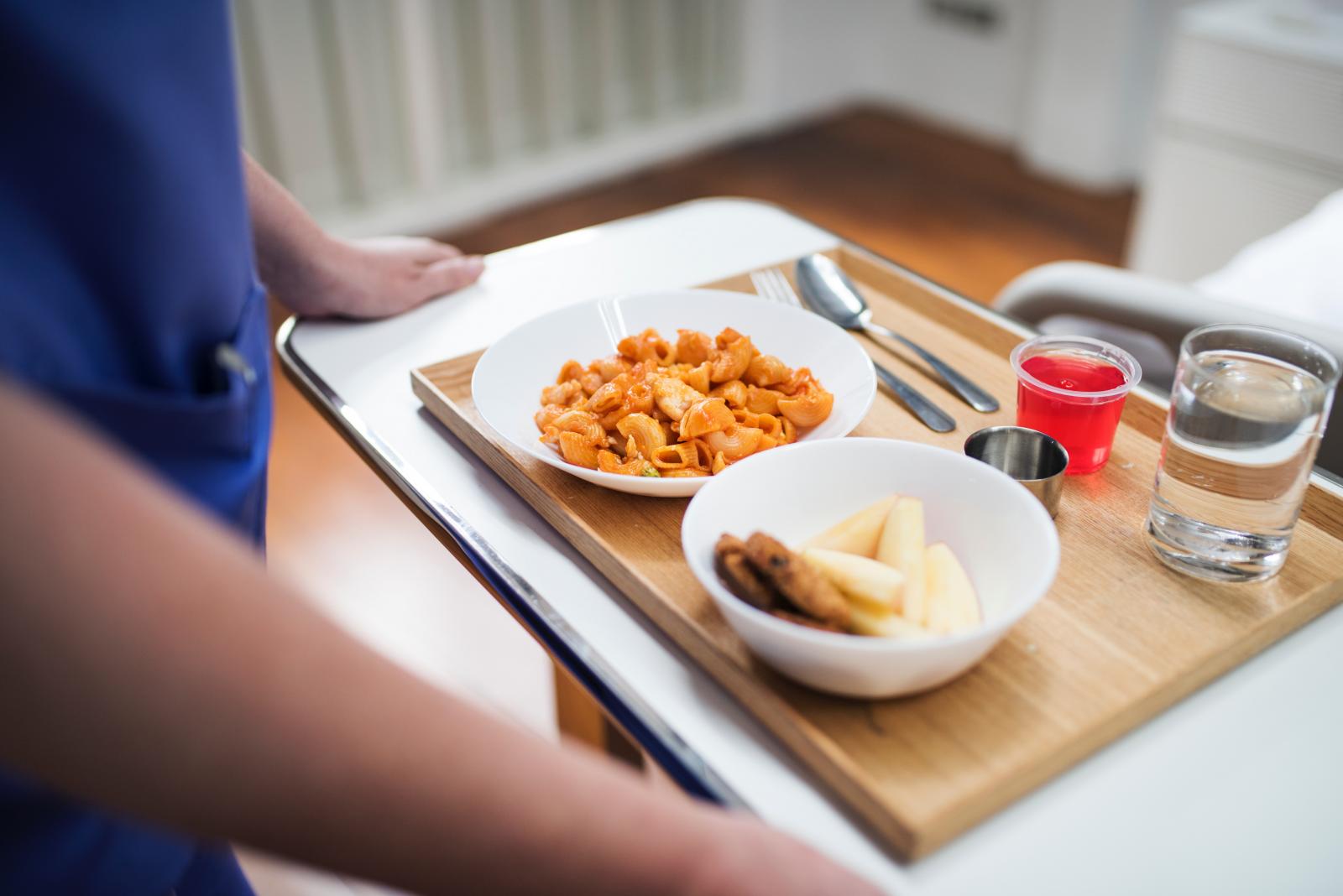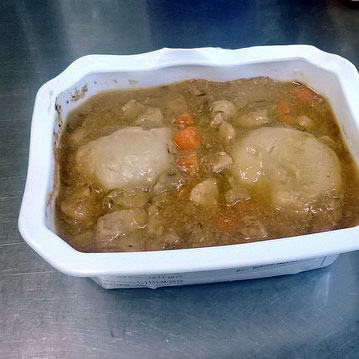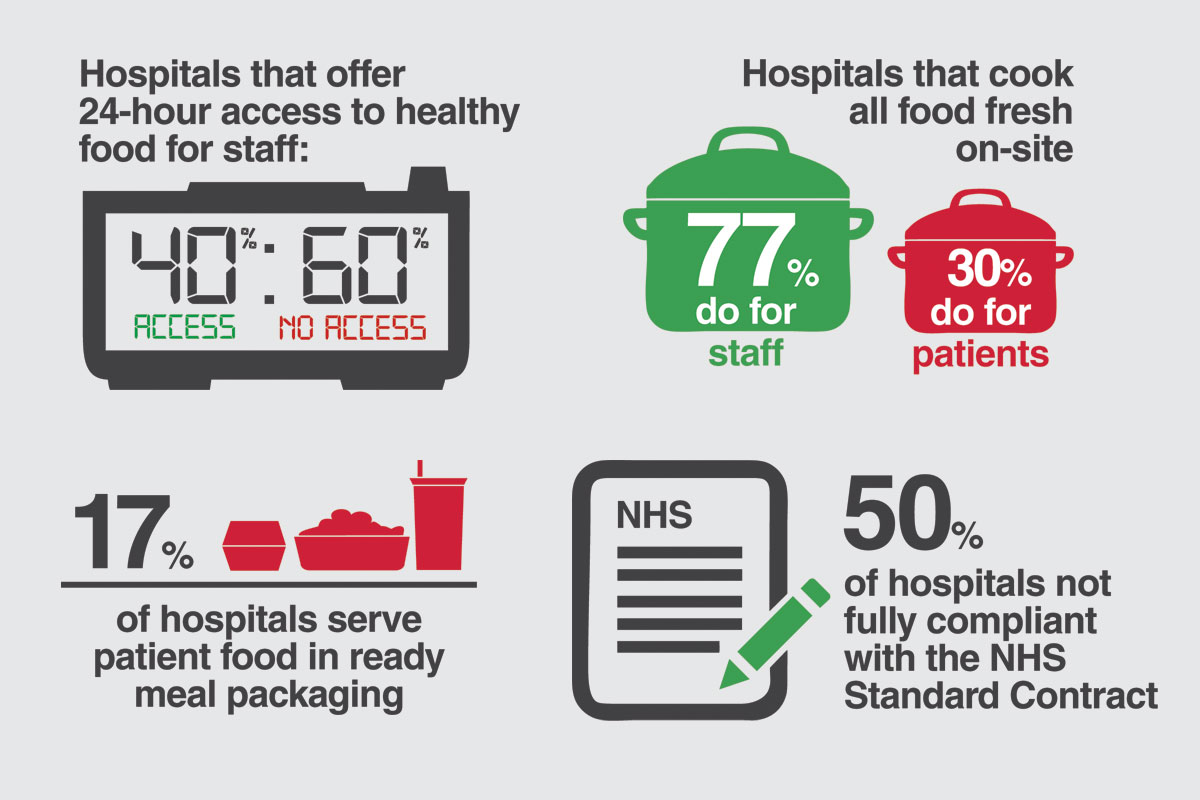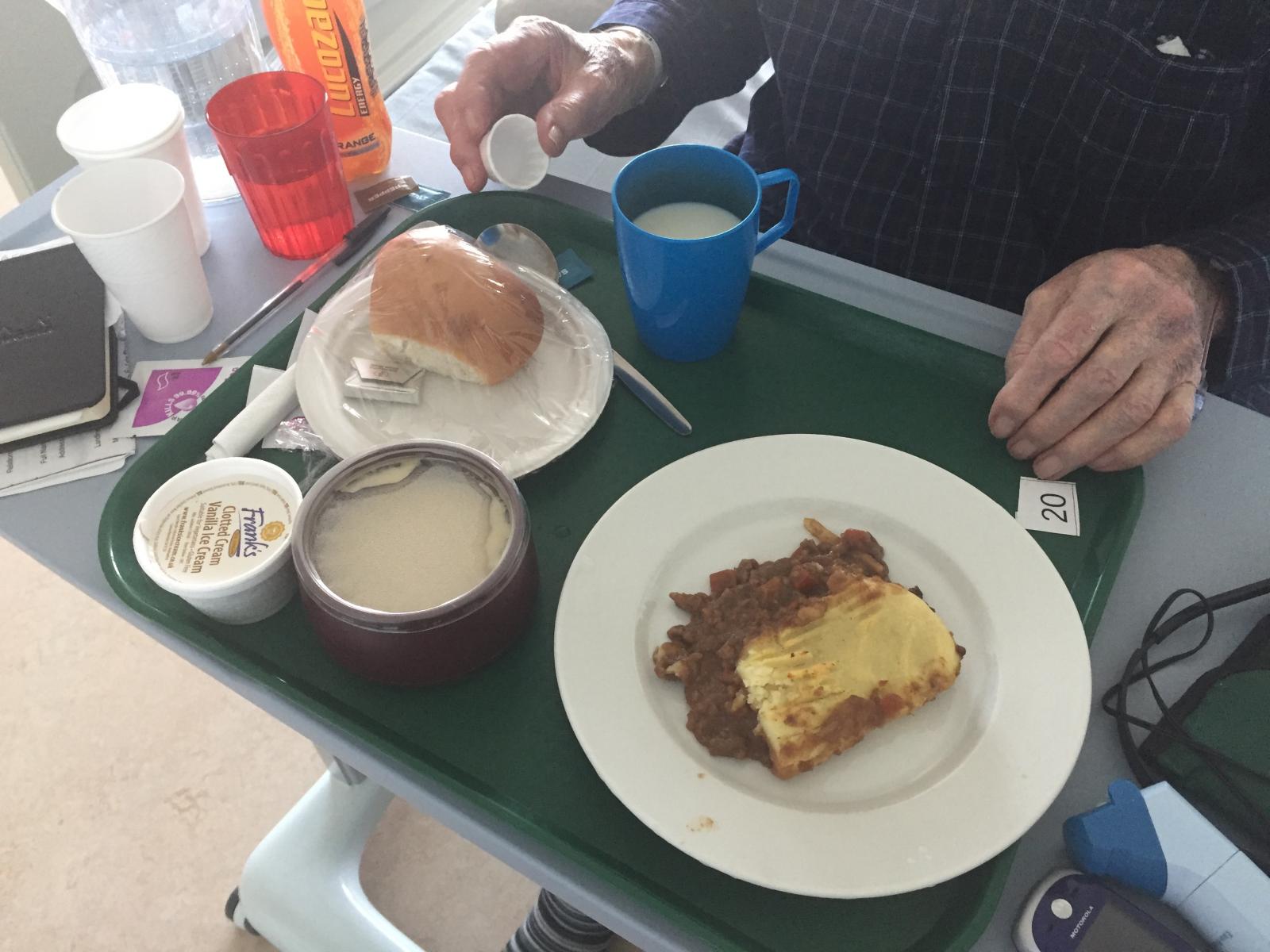Hospital food can be improved only by legislation
Katharine Jenner, Chief Executive officer of Blood Pressure UK, Campaign Director for Consensus Action on Salt and Health (CASH), and Chair of the Campaign for Better Hospital Food
As the government announces a review of hospital food, Katharine Jenner writes that only legislation can ensure that inpatients get adequate nutrition
Which of these statements are true?
a) Hospital food is less environmentally friendly than food served at McDonalds
b) Food served to children in hospitals is so unhealthy it couldn’t legally be offered in schools
c) Prison food is served fresher and warmer than hospital food
Unfortunately, for some hospitals all are true. This is why action is needed. Twenty years’ worth of government initiatives have failed because they rely on hospitals to voluntarily adopt food standards for patients’ meals [1]. The voluntary approach is not working, and the government should set mandatory standards for hospital food without exception. This would help improve the quality, healthiness and environmental standard of patient meals, and ensure that they lead by example, helping to inspire patients, visitors, and staff to eat better food outside of hospital.
Evidence shows that hospital food is not good enough [2]. The government has said that as many as 50,000 people a year could be dying with malnutrition in NHS hospitals in England [3]. Age UK categorises malnutrition among older hospital patients as elder abuse because it results in longer periods of illness, slower recovery from surgery, and increased mortality rates.
Furthermore, a survey of hospital meals by the Campaign for Better Hospital Food found that three out of every four hospital meals would qualify for a red light, under the Food Standards Agency’s traffic light model, for high saturated fat, and 15 of the 25 meals surveyed contain more salt than a Big Mac.
Robert Francis QC’s report on the Mid Staffordshire NHS Foundation Trust Public Inquiry highlighted many concerns about the standard of care in the NHS, including the standard of hospital food. The report concluded that the NHS needs clearer, better enforced standards [4]. In February in the BMJ experts called for the government to include nutritional care in its mandate to the National Commissioning Board [2].
Most British public sector institutions already have to adhere to mandatory standards for the meals they serve, including mandatory nutritional standards for school food and the food served in hospitals in Wales and Scotland. Several nutritional and environmental standards apply to food served in government departments and prisons. So why are there no mandatory standards in English hospitals?
I am not asking for standards that you would find only in a Michelin starred restaurant; rather, healthier and more nutritious food with less salt and saturated fat that is sustainable, with higher animal welfare standards, and fair trade. Meals should be accessible to patients within reasonable meal times.
Throughout the retail sector, demand from customers has led to improvements in the food sold, as seen with salt reduction [5]. It is in retailers’ best interests to keep their customers happy. Shouldn’t the same apply to hospitals?
The first steps towards better standards are outlined in the Government Buying Standards, which the Department for Environment, Food and Rural Affairs recommends that hospitals implement, and which have been introduced for government departments and prisons.[6]
They are clear, simple, and workable, and there is no reason why they shouldn’t be extended to hospitals. Nottingham University Hospitals NHS Trust has announced that it made a daily saving of £2.50 (€3; $4.10) per patient, as well as a reduction of 150,000 food miles a year, by switching to fresh local ingredients [7]. The trust says that the NHS could make a national saving of £400m a year if the same standards were implemented throughout the health service [7].
About half of hospital meals are made by catering companies such as Compass Group and Sodexo and are reheated after delivery to hospitals. The other half are freshly made either in the hospital’s own kitchen or in a facility off site. Even suppliers are asking for standards. They want to know exactly what they need to deliver in terms of local sourcing, sustainability, welfare, and healthier food [8]. If hospitals demanded higher standards from their suppliers the cost of good food would come down, because of economies of scale, to the benefit of all consumers.
It’s not clear whether hospitals would oppose mandatory standards. But a staggering two thirds of hospital staff say that they would not be happy to eat the food that they serve to patients [9]. Although some hospitals are already seeing the benefits of adopting voluntary food standards, including higher satisfaction rates among patients and less waste and spending on food, take-up has been very slow.
On 8 November 2013 Julia Cumberlege introduced a Hospital Food Bill to the House of Lords. This bill would require the health secretary to convene a body of experts to draft mandatory food standards for hospitals, and it would task the Care Quality Commission with ensuring that these standards were met. The bill’s success depends on government support, which has not yet been forthcoming. As a compromise, the government has created a hospital food standards panel to review how such standards can be more stringently applied to patients’ meals and to food sold on hospital premises to staff and visitors, without making them legally binding.
We should all act now to give our backing to this bill to give it the best possible chance of success.
References
- Campaign for Better Hospital Food. Twenty years of hospital food failure: Why we need mandatory standards, not more ineffective voluntary initiatives. 2013www.sustainweb.org/publications/?id=265.
- Leach RM, Brotherton A, Stroud M, Thompson R. Nutrition and fluid balance must be taken seriously. BMJ 2013;346:f801.
- Devlin K. Almost 50,000 patients a year “die in hospital while suffering from malnutrition”. Telegraph 26 Feb 2010. www.telegraph.co.uk/health/healthnews/7317233/Almost-50000-patients-a-year-die-in-hospital-while-suffering-from-malnutrition.html.
- Francis R. Mid Staffordshire NHS Foundation Trust Public Inquiry report. 6 February 2013. www.midstaffspublicinquiry.com.
- Department of Health. Report on dietary sodium intakes. 21 June 2012. www.gov.uk/government/news/report-on-dietary-sodium-intakes.
- Department for Environment, Food and Rural Affairs, Sustainable development in government. Food and catering services. November 2013. www.sd.defra.gov.uk/advice/public/buying/products/food.
- NHS Sustainable Development Commission, Nottingham University Hospitals NHS Trust: Sustainable Food Service, www.corporatecitizen.nhs.uk/casestudies.php/14/nottingham-university-hospitals-nhs-trust-sustainable-food-service.
- Department for Environment, Food and Rural Affairs, Council of Food Policy Advisors. Meeting notes, 11 May 2009. www.archive.defra.gov.uk/foodfarm/food/policy/council/pdf/cfpa-090512-note.pdf.
- Soil Association. First Aid for Hospital Food. 2011. www.soilassociation.org/LinkClick.aspx?fileticket=2p/anI11%2b6o%3d&tabid=1311.
19 December 2013
British Medical Journal http://www.bmj.com/content/347/bmj.f7300
Published Thursday 19 December 2013
Better Hospital Food: The campaign represents a coalition of organisations calling on the Westminster government to introduce mandatory nutritional, environmental and ethical standards for food served to patients in NHS hospitals in England.




